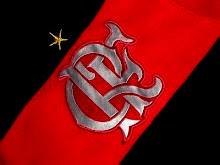The Zulu Kingdom played a major role in South Africa history during the 19th and 20th centuries.
Under apartheid, Zulu people were classed as third-class citizens and suffered from state-sanctioned discrimination. They remain today the most numerous ethnic group in South Africa, and now have equal rights along with all other citizens.
The linguists usually count around 7,000 languages, and several thousands dialects can also be added. The table below (which shows about 800 main languages) is only a glimpse of the huge diversity of languages.

The Niger-Congo and the Bantu groups are part of a larger one called the Niger-Kordofonian family, which most spoken (in number of people) languages are:
Swahili - 30 MM (Tanzania, Kenia, Uganda, Congo D.R., Rwanda and Burundi)
Yoruba and Igbo - 20 MM each (Nigeria and Benin)
Kinyarwanda-Kirundi - 15 MM (Ruanda and Burundi)
Fula - 13 MM (Senegal, Gambia, Guinea, Easthern Nigeria and Cameroon)
Bambara - 12 MM (Mali and Ivory Coast)
Zulu - 11 MM (South Africa, Zimbabwe, Zambia and Mozambique)
Shona - 10 MM (Zimbabwe, Zambia and Mozambique)
South Africa is known for a diversity in cultures and languages. Eleven official languages are recognised in the constitution. Two of these languages are of European origin: Afrikaans, a language which originated mainly from Dutch that is spoken by the majority of white and Coloured South Africans, and South African English. Though English has a large role in public and commercial life, it is nevertheless only the fifth most-spoken home language.
The 11 official languages of South Africa:
English, Afrikaans, Zulu, Xhosa, Venda, Tswana, Tsonga, Swazi, Northern Shoto, Southern Shoto and Southern Ndebele.

No comments:
Post a Comment